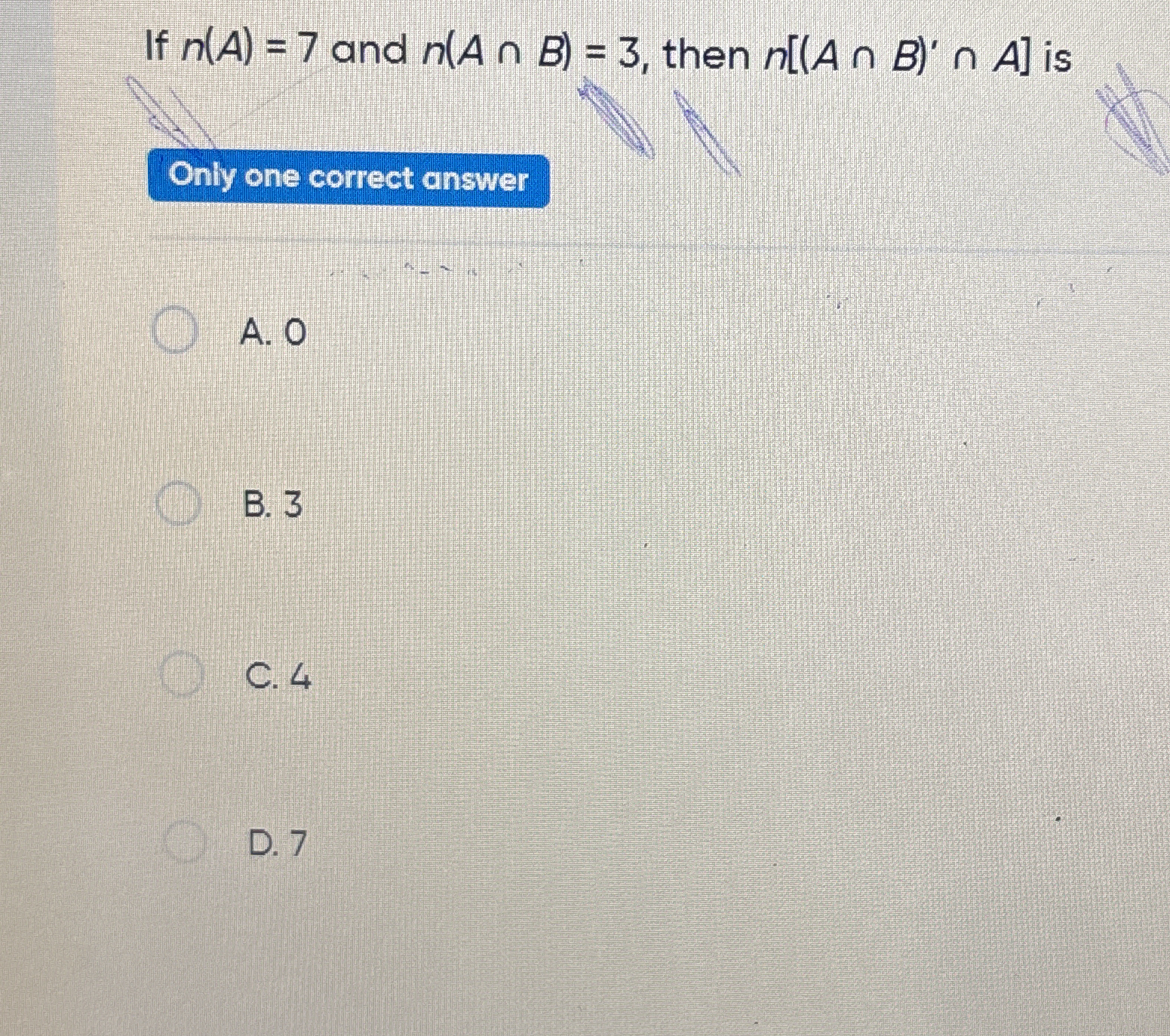If n(A) = 7 and n(A ∩ B) = 3, then n[(A ∩ B)' ∩ A] is?

Understand the Problem
The question is asking for the number of elements in the intersection of the complement of set A and set B with respect to set A, using the given values for the sizes of sets A and the intersection of A and B.
Answer
The answer is $4$.
Answer for screen readers
The answer is $4$.
Steps to Solve
- Identify the given values
We have the following values:
- $n(A) = 7$ (total elements in set A)
- $n(A \cap B) = 3$ (elements common to both A and B)
- Find the complement of the intersection
The complement of the intersection $(A \cap B)'$ includes all elements in universal set U except those in $A \cap B$. Since we are interested in the intersection with set A, we only consider elements in A.
- Calculate the elements in A that are not in B
To find $n((A \cap B)') \cap A$, we can calculate: $$ n(A) - n(A \cap B) = 7 - 3 = 4 $$
This means there are 4 elements in A that are not in B.
- Final result
Since we are looking for $n[(A \cap B)' \cap A]$, which is the number of elements in A that are not in B, the answer is: $$ n[(A \cap B)' \cap A] = 4 $$
The answer is $4$.
More Information
The complement of the intersection with respect to set A gives the number of elements in A that do not belong to B. In this case, with 7 total elements in A and 3 found in both A and B, we are left with 4 elements unique to A.
Tips
- Misunderstanding the complement: Remember that the complement refers to elements not in the specified set, so $(A \cap B)'$ means everything except the elements in both sets.
- Incorrectly applying the intersection: Ensure you are intersecting with the correct set; here it’s important to know we are only considering elements in A.
AI-generated content may contain errors. Please verify critical information